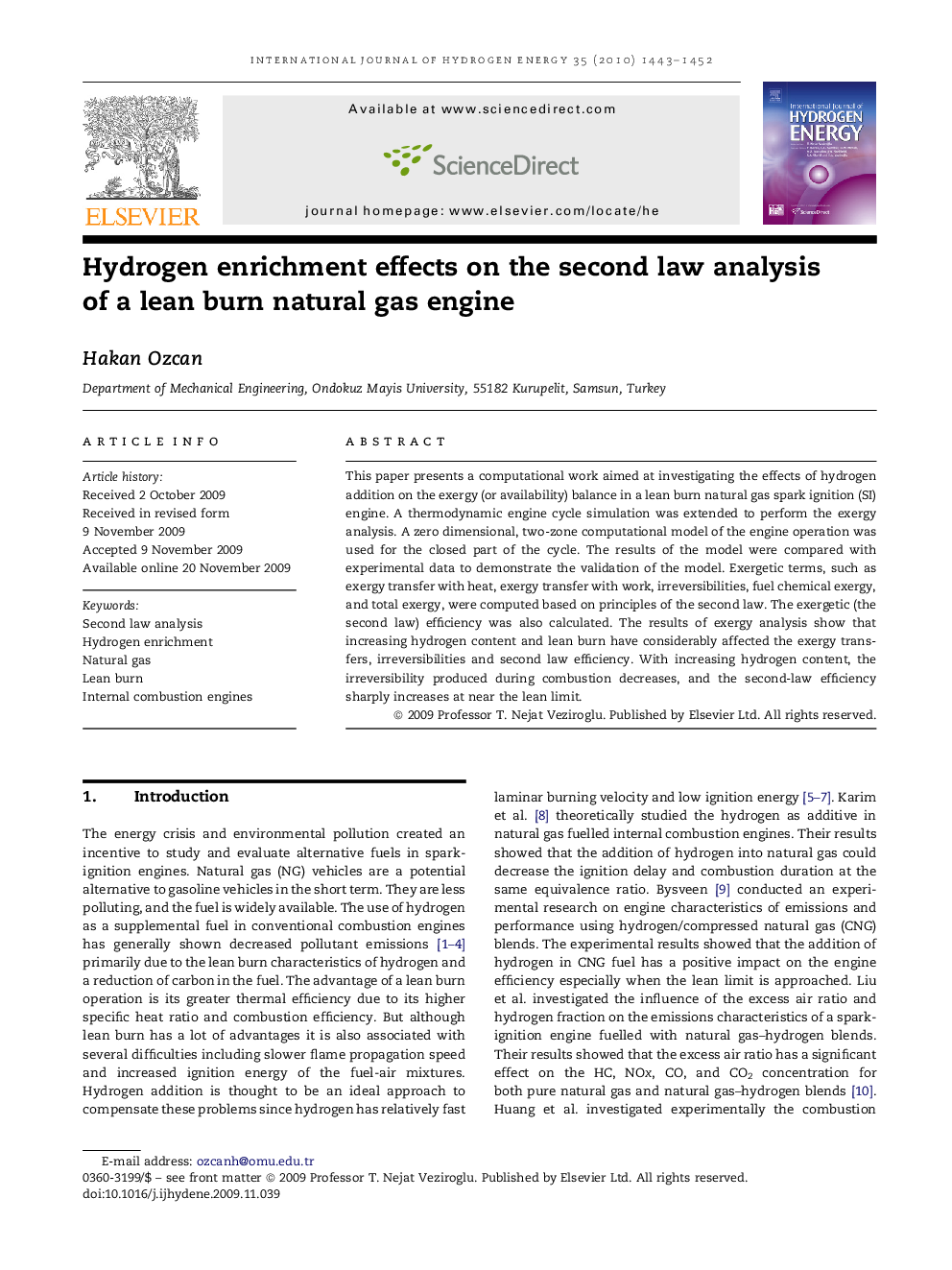| Article ID | Journal | Published Year | Pages | File Type |
|---|---|---|---|---|
| 1273539 | International Journal of Hydrogen Energy | 2010 | 10 Pages |
This paper presents a computational work aimed at investigating the effects of hydrogen addition on the exergy (or availability) balance in a lean burn natural gas spark ignition (SI) engine. A thermodynamic engine cycle simulation was extended to perform the exergy analysis. A zero dimensional, two-zone computational model of the engine operation was used for the closed part of the cycle. The results of the model were compared with experimental data to demonstrate the validation of the model. Exergetic terms, such as exergy transfer with heat, exergy transfer with work, irreversibilities, fuel chemical exergy, and total exergy, were computed based on principles of the second law. The exergetic (the second law) efficiency was also calculated. The results of exergy analysis show that increasing hydrogen content and lean burn have considerably affected the exergy transfers, irreversibilities and second law efficiency. With increasing hydrogen content, the irreversibility produced during combustion decreases, and the second-law efficiency sharply increases at near the lean limit.
